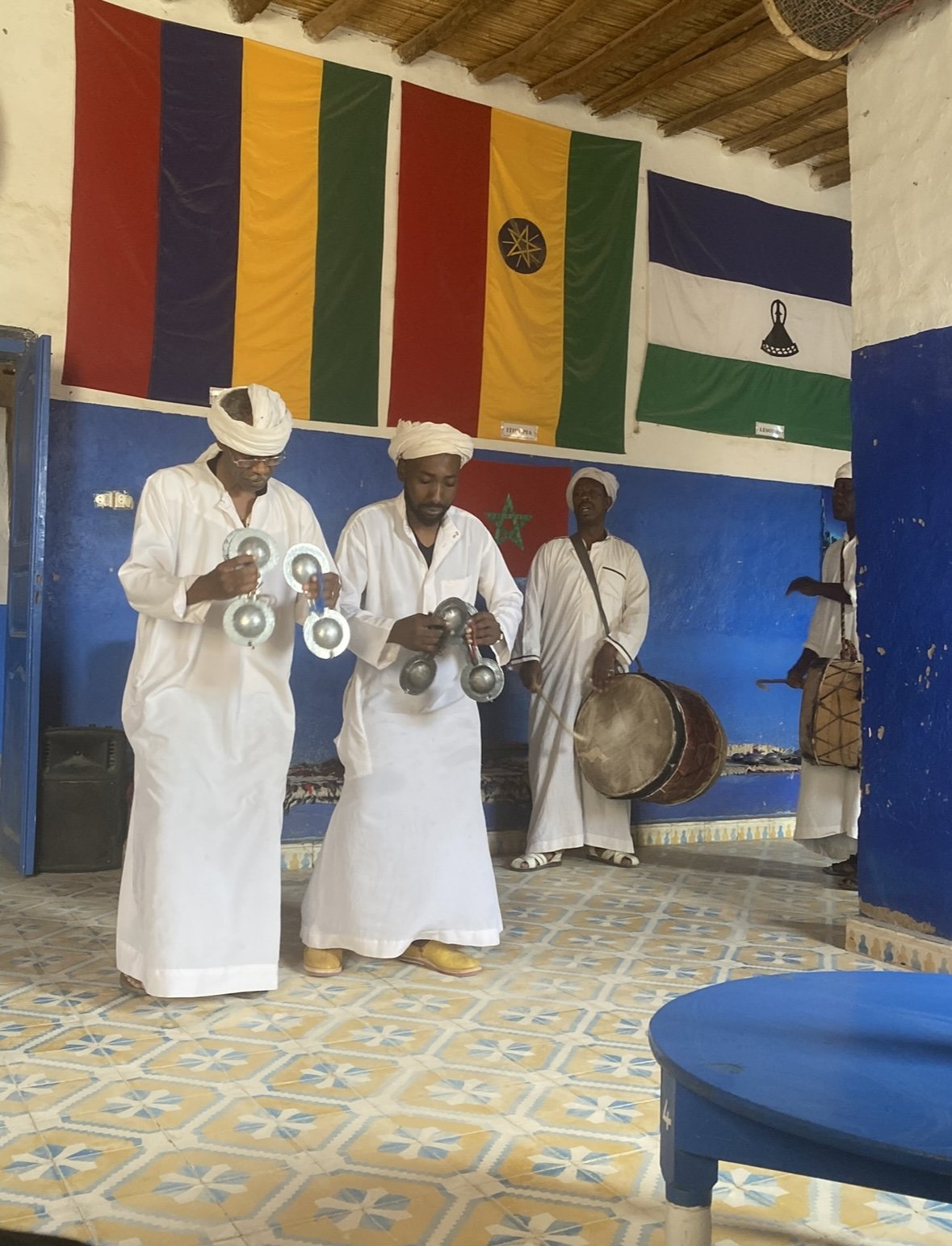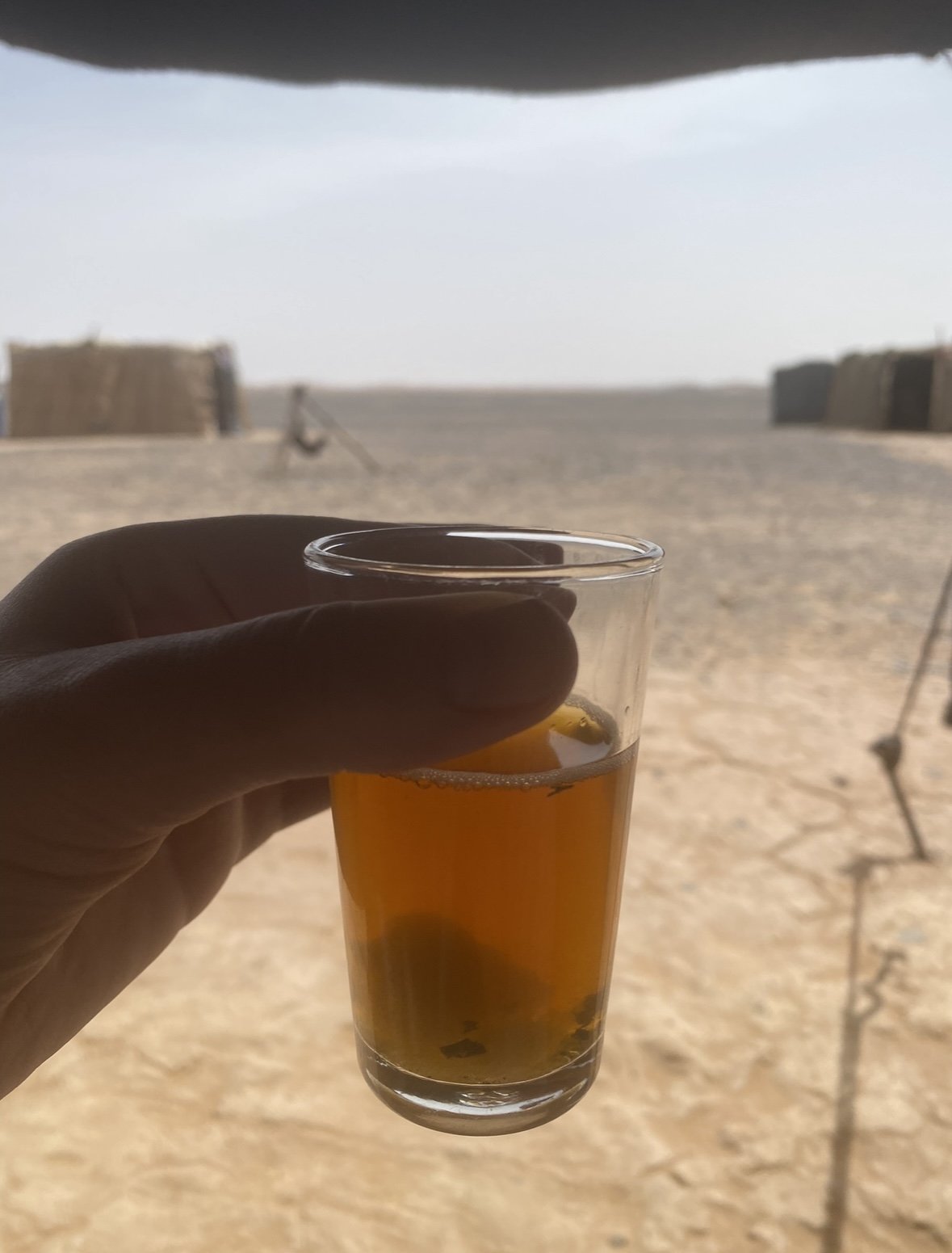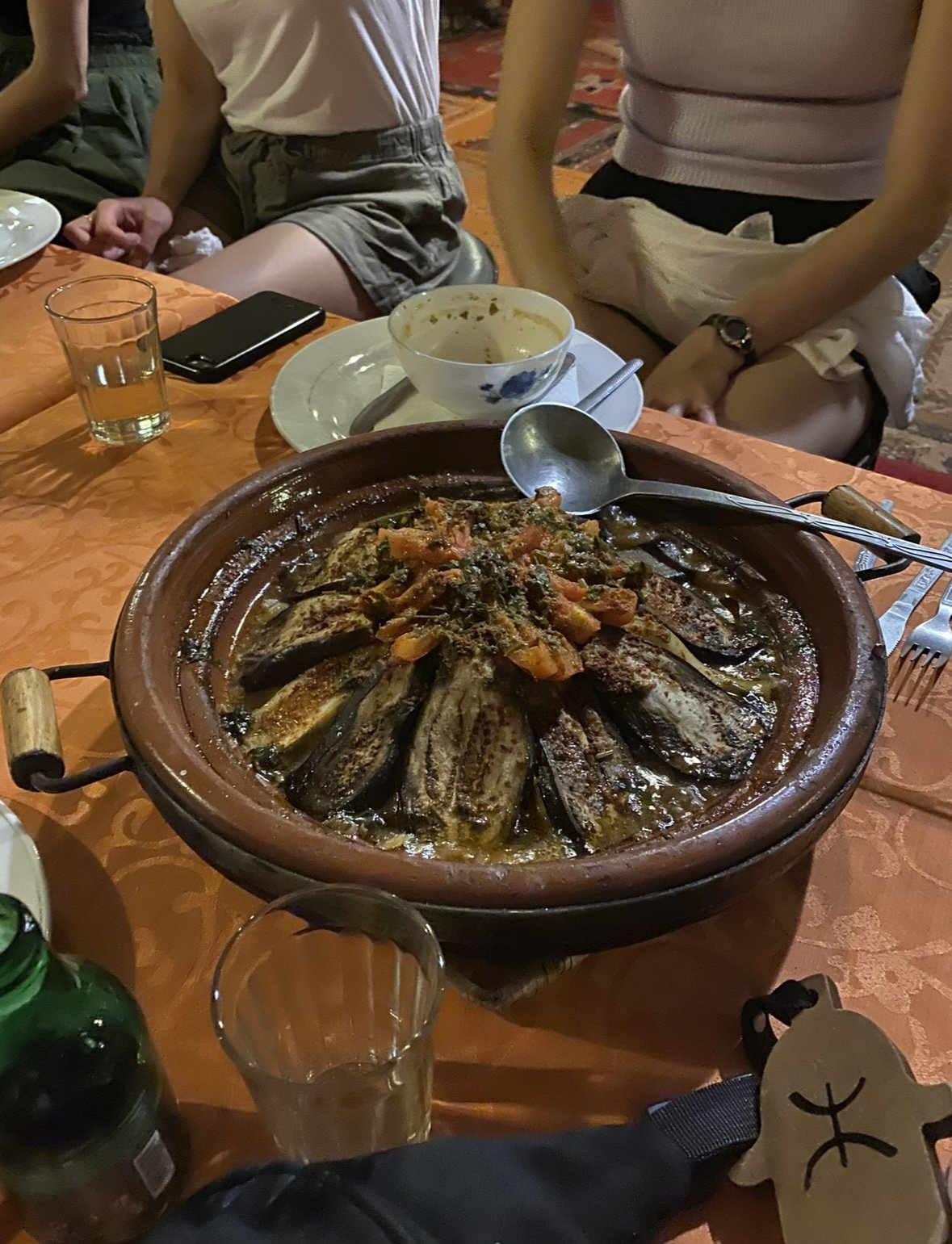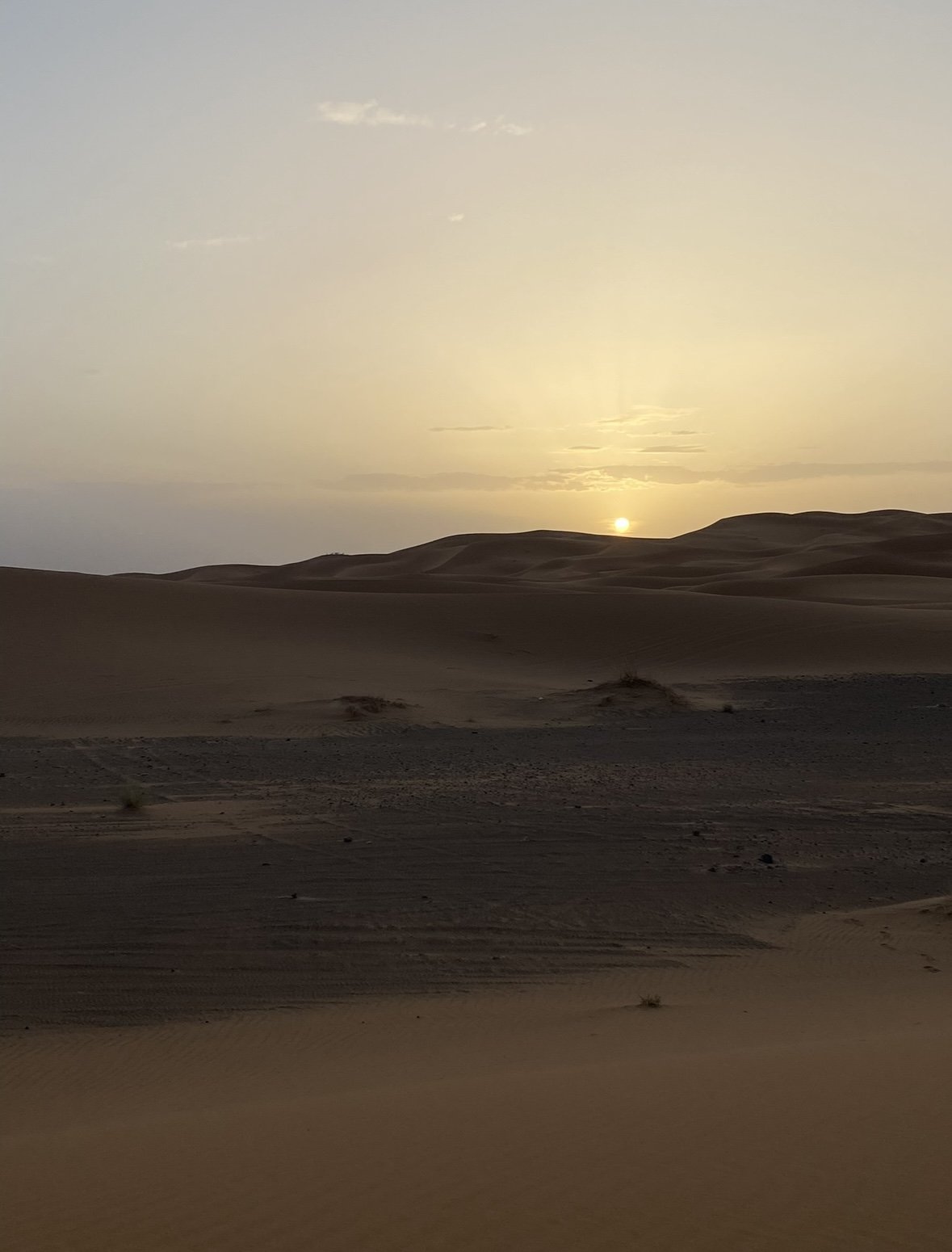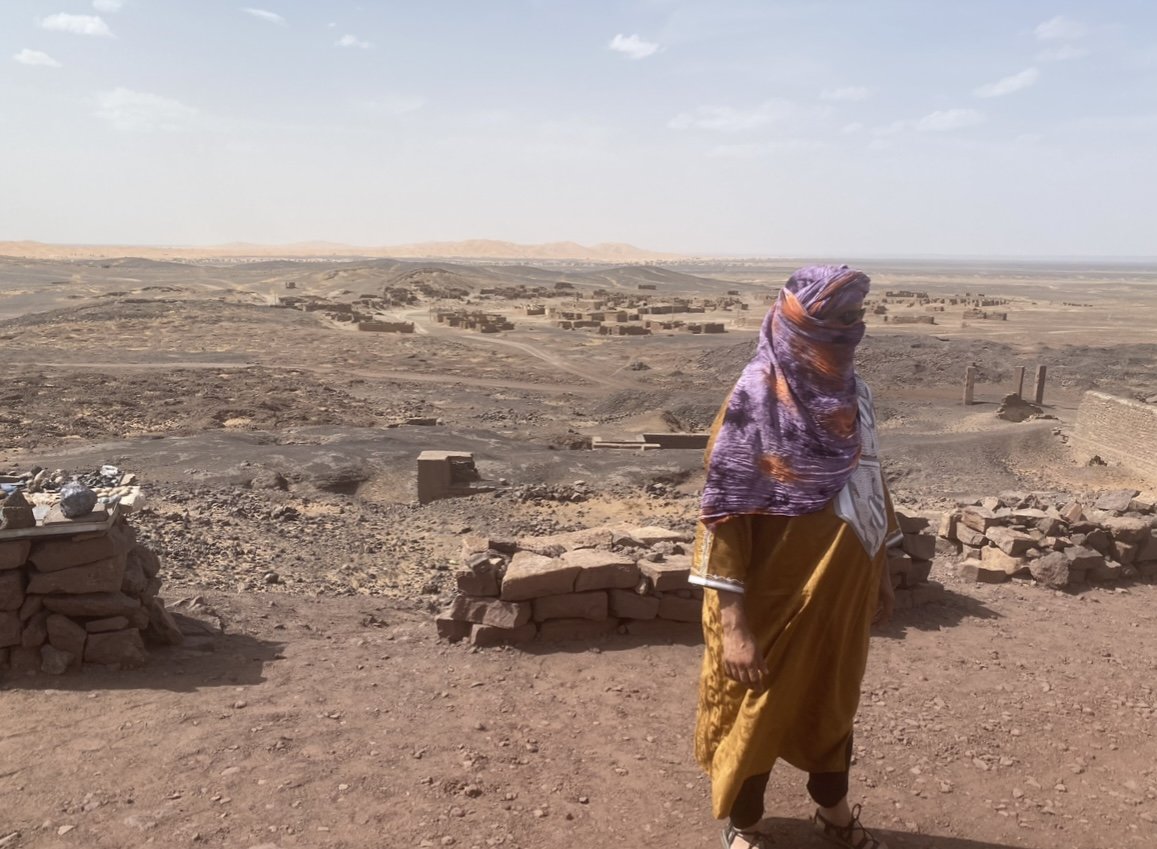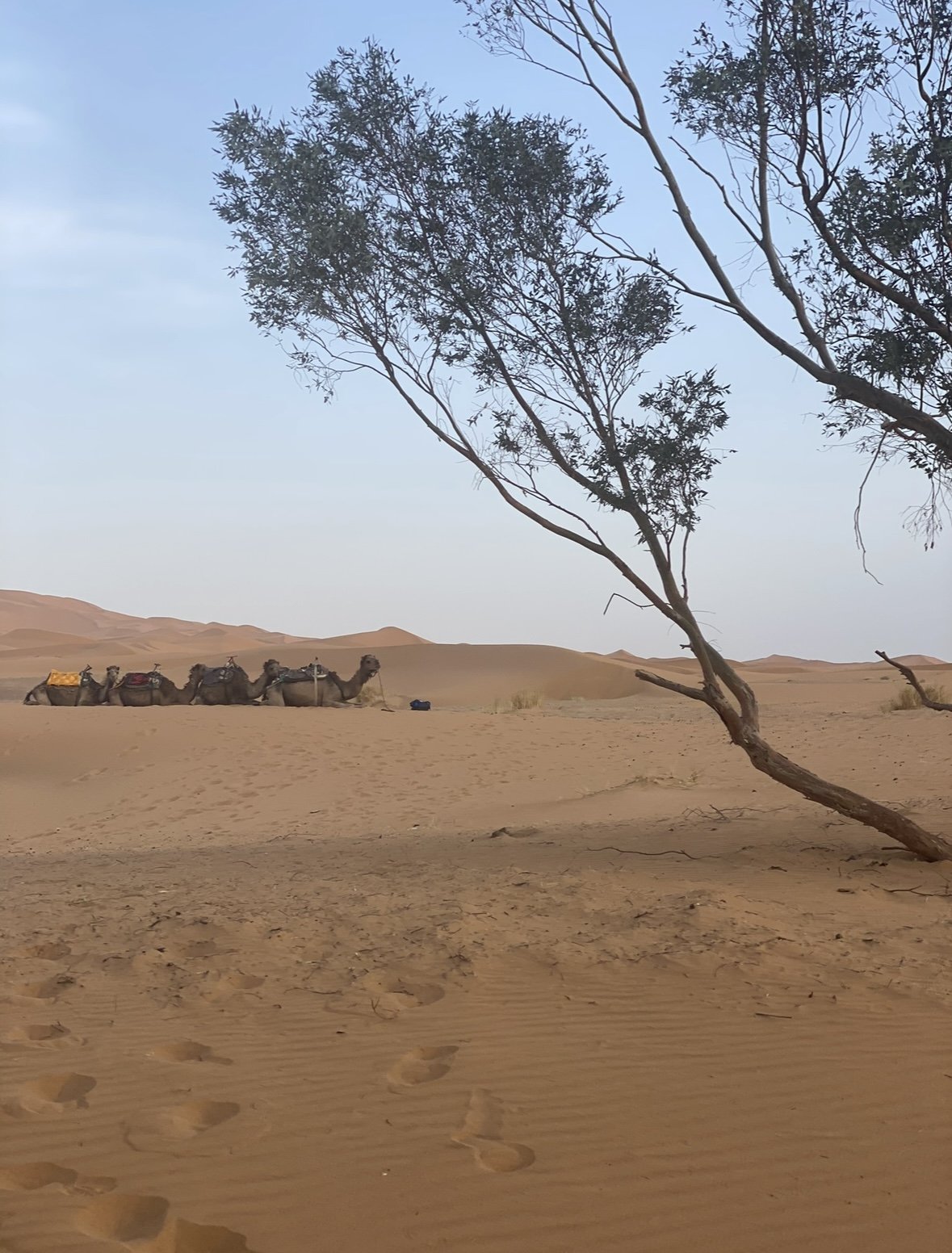Merzouga: Gateway to Morocco's Sahara Desert
Merzouga is a must-visit for travellers to morocco who dream of visiting the Sahara Desert. And who wouldn't have the Sahara at the top of their bucket list? The Sahara Desert: the largest hot desert in the world. Spanning across North Africa it has captured the attention of intrepid travellers for centuries.
Travelling to the Sahara in the blistering June heat probably wasn't my best move though. 40C was teetering on the edge of being too hot to handle. Yet, for many, where it isn't already, it will become the new normal.
Life is difficult here in one of the most hostile environments on earth. Having the opportunity to meet the people who call it home was something I couldn't pass up. And you shouldn't either.
One of the highlights of the Moroccan Desert Adventure: River Canyons and Camels tour with G Adventures was easily visiting the Sahara Desert. To be honest, it was one of my key motivations for choosing this itinerary and it didn't disappoint.
So, why should you add a stop in Merzouga to your Morocco itinerary?
Where is Merzouga?
Merzouga is a tiny desert town in the southeast of Morocco that borders the Sahara Desert. Situated roughly 560 kilometres from the Moroccan capital of Marrakech it is home to around 500 inhabitants.
For adventure travellers, it is an iconic destination that's home to mesmerising landscapes, including the famous Erg Chebbi dune.
Here, you can stargaze under clear night skies, venture on a 4x4 tour to meet the local nomadic people and join a camel trek across the dunes. Merzouga offers an authentic slice of Morocco.
On the way to Merzouga from Marrakech there are plenty of other sites that warrant your attention. Aït Ben Haddou, Todra Gorge and Ouarzazate should all be added to your Morocco itinerary - more on those later.
4x4 Jeep Safari
Upon arrival in Merzouga you are greeted by an intense wall of warmth as the Sahara heat blasts over your skin. For hours you have passed through ancient Moroccan villages and watched seemingly endless barren arid landscapes pass by your window. You finally arrive at a place where the streets have no name.
After checking into our hotel, it was time to venture into the dunes and retreat to the cool air conditioning of our truck. With burnt orange dunes dominating the landscape and our local guide navigating the way we drove through the desert to the sound of Bob Marley - our drivers favourite artist.
Our first stop took us to meet a nomadic Berber family. Amazingly, life can exist here in such a hostile environment. The nomadic Berber people who travel across the region have learnt to exist within these extremes. Our hosts - Abdul and Fatima - warmly greeted us with a glass of traditional mint tea before we broke bread together. Meeting Fatima and Abdul was easily a trip highlight. They showed us so much warmth and hospitality as they explained their nomadic lifestyle and showed us around their camp. Walking into their boiling hot kitchen where Fatima was cooking tagine in 40C heat will stay with me forever.
Other stops on the 4x4 tour included a local garden with a fascinating irrigation system, a khol mine on the edge of the Algerian border and a local Gnawa music community. I highly recommend signing up for a 4x4 jeep tour during your time in Merzouga.
Camel Trekking
If you're anything like me, you would be nervous about a camel trek. As someone passionate about sustainable and ethical travel, I am always cautious to not encourage tourism that promotes bad animal welfare practices. Unfortunately, in Morocco, you will see evidence of animal abuse in many places. At the time of writing, there are no animal welfare laws in the country.
Whilst I was surprised that our tour included a camel trek, by booking with G Adventures - a company that prioritises socially and environmentally ethical tourism - I was confident that this camel trek had been properly vetted.
Camels are an important animal for the nomadic people of the Sahara, and they have been for centuries. Opting to join a camel trek can support local communities and provide funds to ensure that camels receive the necessary care and food they need. With life becoming increasingly hard for people living a nomadic lifestyle, often the only way for people to keep their animals to offer rides to tourists.
Here's some tips to bear in mind when booking a camel trek:
Pay a fair price for the experience
Check the camels look healthy before signing up
Support people and organisations that respect their animals by leaving a review for future travellers
If you witness mistreatment of animals, speak up and don't support those operators
You can read more about how you can help camels in Morocco here.
All the camels appeared healthy with no wounds or protruding bones. The saddles and reins were not adjusted too tightly so they were comfortable for the camel throughout the trek. I also watched closely how the handlers interacted with the animals and didn't witness anything alarming.
Sunset over the Sahara
While riding a camel isn't for everyone, it's certainly worth it for the views here in the Sahara. We trekked for around an hour deep into the desert. The peace and serenity that you find in the desert is hard to replicate.
Once we arrived at our destination we had a tough scramble to the top of a dune to watch sunset. DO NOT underestimate how hard it is to climb a dune. If you're anything like me, you'll do it on all fours. But it is good fun and a memorable experience. After snapping many many photos you can watch the orange sun disappear behind the horizon from the top of a sand dune in the Sahara before venturing back on your camel to the hotel. Bliss. Another bucket-list moment checked off.
Final Tips
Before you leave Merzouga, I highly recommend waking up early in the morning to witness the sun rising from behind the sand dunes. Witnessing a sunrise in the Sahara Desert is something you must do if you visit Morocco.
Merzouga is a must-visit for any adventure seekers travelling to Morocco who dream of visiting the Sahara Desert. As the Gateway to the Sahara, it offers the perfect opportunity to experience one of the harshest environments on earth and to meet the people who call it home. It won't disappoint.


